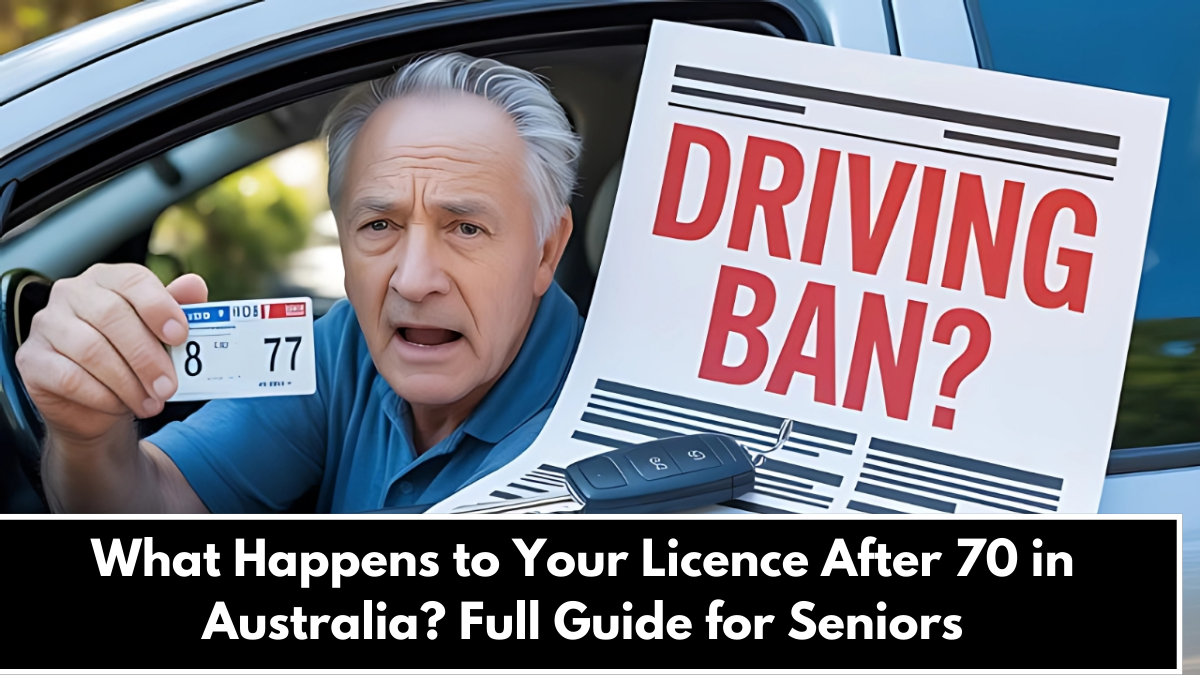Older Australian drivers in 2025 face updated renewal pathways centered on medical fitness and, in some jurisdictions, shorter renewal periods and additional assessments as age increases, but rules differ by state and territory rather than being a single national “over‑64” policy. A practical way to navigate this is to check the local transport authority’s thresholds for medical certificates, vision tests, and any practical assessments that apply from the early 70s onward, with some states initiating routine checks at 75 or 80 and others relying on case‑by‑case medical reporting.
What actually changed in 2024–2025
- The most consistent shift is toward more frequent medical fitness checks for seniors, including vision, cognition, mobility, and medication reviews, with annual certificates common from age 75–85 depending on the state; some authorities have also reduced renewal periods for older drivers to tighten ongoing oversight. These changes align with a national emphasis on “fitness to drive” while keeping independence for safe drivers.
- New South Wales updated older driver processes, requiring medical assessments at specific age milestones (for example, annual medical after 85) and using older‑driver assessments or modified licences where appropriate, reflecting a safety‑and‑mobility balance rather than an automatic loss of driving rights at a given age.
- Queensland formalizes that drivers 75+ must carry a current medical certificate to drive, illustrating how some states use a clear document‑carrying requirement to operationalize senior fitness checks on the road.
Beware of viral claims
Some online posts in 2025 suggest new national badge requirements or single nationwide triggers for seniors; such claims are not reflected in state transport guidance and should be treated cautiously until confirmed by an official state authority publication, since Australian licensing remains administered at the state/territory level with distinct thresholds. Relying on the relevant state transport website is essential to avoid acting on non‑official summaries or generalized social media assertions.
State-by-state snapshot (2025)
- Queensland (QLD): No upper driving age, but drivers aged 75 and over must carry a current medical certificate at all times when driving; failure to do so can impact the right to drive until a valid certificate is obtained. Renewal planning should allow time to book a GP assessment before the licence expires.
- New South Wales (NSW): No upper age limit, but medical fitness assessments and older‑driver or rider assessments are scheduled around milestone birthdays; from age 70 onward, requirements increase depending on licence class and medical advice, with annual medicals common at the highest age bands.
- Western Australia (WA): Seniors from around age 80 require medical assessment for renewal, commonly annually from the mid‑80s, with conditional licences possible (e.g., area or daylight driving) based on the assessment outcome. Renewal packs and medical forms are sent well ahead of expiry to streamline compliance.
- Other jurisdictions: Several states rely on mandatory self‑reporting of conditions that may affect driving, plus doctor or authority‑initiated assessments; a consolidated view shows recurring annual checks in some states at 75 or 80 and case‑by‑case triggers elsewhere, reinforcing the need to verify the specific local rule set rather than assuming a uniform national age.
What drivers over 64 should do now
- Check local rules: Visit the state transport site for the exact age triggers and documents required for the next renewal cycle; don’t assume interstate rules apply after relocating, as the new jurisdiction’s thresholds will govern future renewals.
- Book medicals early: If approaching a milestone age, schedule a GP assessment 6–12 weeks before renewal so results are ready within the window authorities accept; this is crucial where certificates must be dated close to the application date.
- Prepare documentation: Bring medication lists, glasses/hearing aids, and any specialist reports to the GP visit; this supports an accurate fitness‑to‑drive certificate and reduces rework.
- Consider conditional options: Where available, conditional or modified licences can maintain mobility (e.g., local‑area or daylight‑only) when recommended by medical assessment, rather than losing the licence entirely.
FAQs
Is there a new national rule in 2025 that drivers over 64 must follow?
No; driver licensing is administered by states and territories, so thresholds and renewal steps differ; most changes in 2024–2025 relate to state‑specific medical assessments and shorter renewal periods for older ages, not a single national “over‑64” rule.
At what age do medical checks become mandatory?
It varies; examples include Queensland requiring a current medical certificate from age 75 when driving and NSW requiring medical and, in some cases, practical assessments at milestone ages, with annual checks in the older bands. Always verify the local trigger and frequency.
Do seniors automatically lose their licence at a certain age?
No; the trend is toward fitness‑to‑drive assessments rather than automatic cut‑offs, and many seniors continue to drive with annual medical clearance or conditional licence terms tailored to safety.
I’m moving interstate; will my current senior licence settings carry over?
When transferring, the new state’s medical and renewal rules apply; plan ahead for medical certificates and any practical or vision components that differ from the prior jurisdiction.



